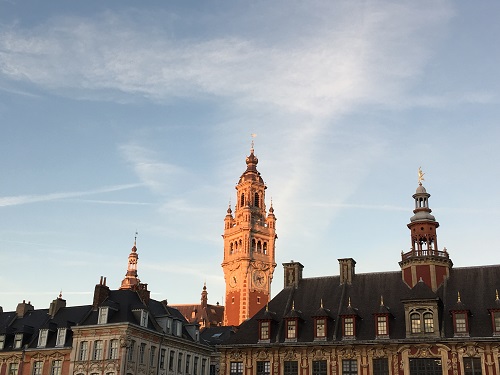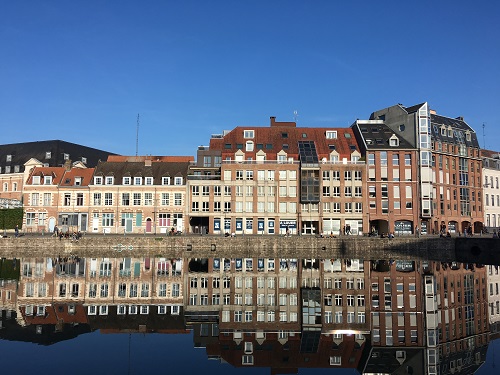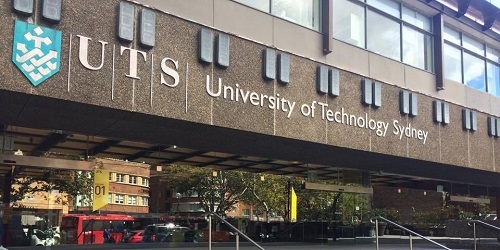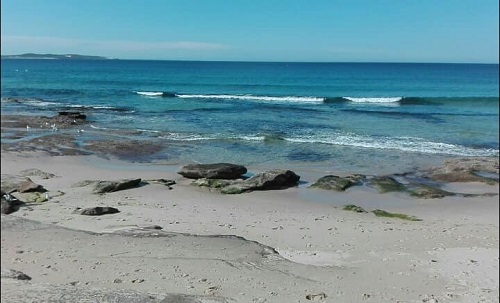2019. February 27.
BME’s staff members shared information on major grant programmes aimed at allowing participants to spend part of their studies, train and take part in short-term study visits abroad.
“The world is open for students in higher education; they actively seek and are offered opportunities to go abroad allowed by the vast support of various grant programmes. To support its students in achieving their goals, BME is trying to promote and make available these international mobility opportunities as widely as possible,” Balázs Vince Nagy, vice-rector for international affairs told bme.hu, explaining that these programmes are designed to allow an insight into the education, methodology and scientific activities of other countries with the knowledge and experience gained used eventually in Hungary. “We will do our best to ensure that the process is smooth and the burden on the applicants is reduced,” he said.
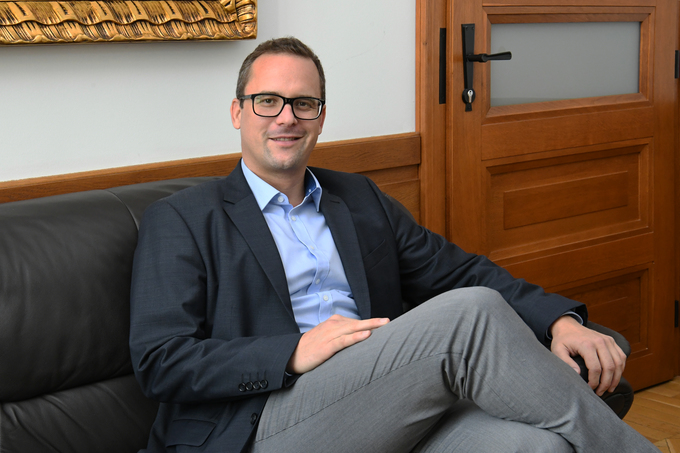
“The application process is smooth, the conditions are clear and BME is effectively coordinating the international academic scholarship programmes published by Tempus Public Foundation,” stressed the international director of the Directorate for International Affairs (NKI) in charge of this function under the Rector’s Cabinet, saying in evidence of her statement that the number of foreign mobility applicants has been constantly rising in recent years.“We are responsible for the professional support of the programmes including managing applications, calls for proposals, documentation, communications and the administration of bilateral agreements while we also work together with the various faculties, BME’s Erasmus coordinators at each faculty and the University Student Representation (EHK) and we try to answer student queries about the applications, clarify misunderstandings and misconceptions,” said Adrien Rátkai-Füzesi, adding that NKI’s, soon to be launched and currently in test mode, website offering the latest news and a newsletter function will allow fast, specific and direct communication with the applicants. They are also planning to create a strong presence on social media and to organise further BME forums for those who would like to listen to the experiences of previous participants and be informed about presently available professional, academic opportunities in person.
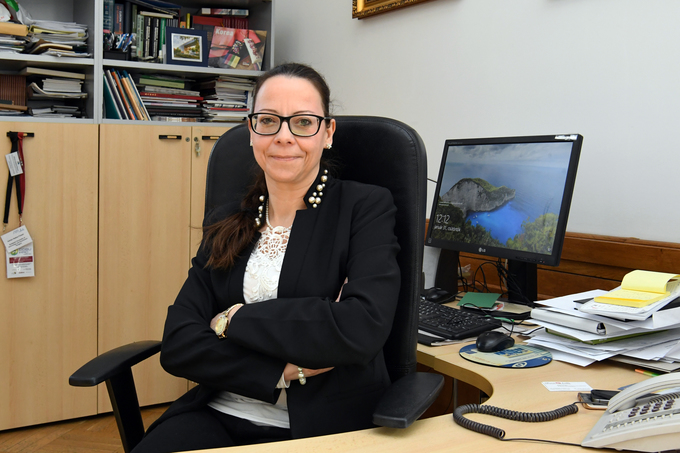
“All of the international student scholarship programmes BME have access to are very popular with our students but the two best-known ones, Campus Mundi and Erasmus+ tend to attract the most applications: every year 380 to 400 apply for the academic mobility programmes with at least 330 receiving a grant,” explained Médea Terczy, the university’s Erasmus coordinator revealing one of the key differences between the programmes: while the former only allows local students to study abroad, Erasmus+ also offers the opportunity to host foreign students. Moreover, Campus Mundi, which focuses on studies, research projects and traineeships outside of our continent, only accepts a host country within Europe if you have already submitted your application for an Erasmus+ grant. Meanwhile, Erasmus+ also provides the opportunity for scientific work if BME signs an agreement with the research institute (Editor note: BME currently has agreements with 300 higher education institutions).
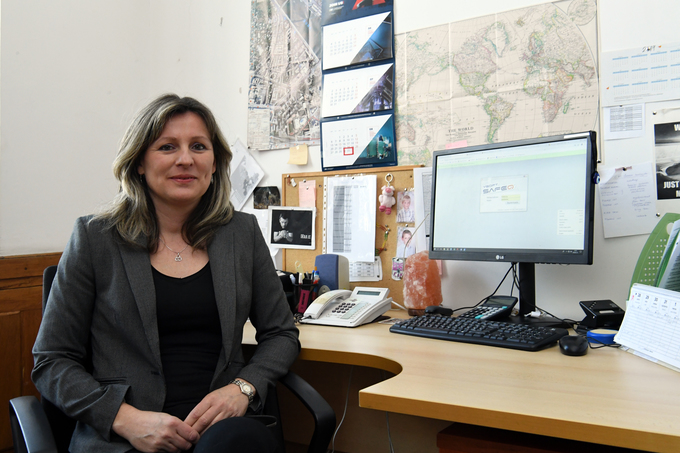
Ms. Terczy was also pleased to report on the increased activity of staff members (including not only teaching staff but also office workers for example) in the scholarship programmes: “while we used to have 45 to 50 applications a year, this year 65 to 70 people received a grant to visit BME’S partner institutions, to negotiate cooperation agreements and joint research projects, to build professional networks or to learn a language.”
BME’s budget for applications for a period of study abroad, traineeships, thesis writing, research projects and short-term study visits at universities or companies amounts to EUR 1.2–1.3 million but further funds are available if the number of applicants is substantially higher. And that number is indeed expected to grow: the rate of applicants using Campus Mundi for their student mobility programme rose from 10% last year to 30% this year. In addition to the rising interest, this is partly explained by the reduction of the required grade point average to 3.5 allowing more students to apply. (Editor note: local academic results are not included in the application criteria for non-European mobility programmes.)
MédeaTerczy also talked about the diverse motivations of the applicants. Based on her experience, “there are students who choose courses abroad relevant to their previous studies to be able to continue their programme on their return while others select an absolutely new area with which to extend their knowledge.” She added that the destinations are equally versatile. “Many people choose Spain, Portugal, Germany, France, Italy and Austria while others prefer to go overseas or to faraway continents such as Australia. Those, however, whose grant fails to cover their costs in more expensive areas and cannot add their own funds, choose cheaper towns or a country in Eastern Europe.” “In general, students can apply for one semester once a year (in February with an extra application period in September), which can be later extended by one more semester. Mobility participants receive their unrestricted use grants prior to their departure and are required to submit a summary on how they spent the money and a report, complete with pictures, on their studies and experiences abroad at the end of the semester. The most exciting ones are available on NKI’s website,” said the Erasmus coordinator explaining the key features of the application.
|
György Ákos Juhász twice spent 2 months at the University of Lille as part of BME’s Erasmus+ traineeship programme. Of his experiences, he said: “I decided to apply because of the questions faced while writing my diploma work and the need for special equipment but I was given so much more during my stay. It’s a very colourful city and the people are very tolerant and hospitable so I became familiar with many cultures and made many friends. Thanks to Lille’s location, I got a lot of chance to travel at weekends, which I will also remember forever. I learned a lot about myself too. I recommend going to Lille for a traineeship or to study for a semester to anyone as it is a real treasure chest with so much to see and to do.”
|
After the mobility period, a minimum of 10 credits must be recognised, which does not result in credit overload or suspension of study as these credits were not taken at BME but completed abroad and so are part of the first semester’s results.
A total of 12 months of mobility is allowed in one academic cycle (in one-tier study programmes, 24 months are available). Additionally, applications are available for traineeships within one year after the receipt of the degree. The required documents (CV, motivation letter, recommendation letter from applicant’s teacher, copies of certificate of language proficiency, certificates from academic competitions, or reflecting outstanding sport or other achievements) should be submitted in hard copy format and request no. 064 should be completed including the name of the receiving institution(s) and submitted in the Neptun system to fully meet the application criteria for the academic mobility programme. Erasmus+ has been amended to allow students at the Faculty of Economic and Social Sciences (GTK), the Faculty of Transportation Engineering and Vehicle Engineering (KJK) and the Faculty of Natural Sciences (TTK) to apply in their first year but they may only go abroad from their second year. The application for traineeships is continuous.
|
Bálint Zsigmond Czifra, BME’s student took part in a trimester course at the University of Technology Sydney. “As part of that, I furthered my knowledge in mechatronics, mathematics and medical technology, joined multiple projects such as a drone design project and programming a machine learning system for EEG. The University of Technology – whose vice-chancellor is Attila Brungs and whose family came from Hungary – is a very hospitable place with people coming from all over the world making it a real melting pot of cultures. It is very modern and student-friendly. I recommend it to everyone, also because it is located on one of the most exotic islands in the world, Australia, home of kangaroos, koala bears, marsupials and surfers but you have to be cautious with spiders of course”, said BME’s student.
|
“These scholarship programmes are very useful for our students as they become more independent and resilient, improve their language and problem solving skills, gather intercultural experiences, can build an international professional network and have better prospects on the labour market thanks to their foreign experience. Mobility is also favourable for BME, whose partnership cooperation arrangements allow it to ensure the quality of the receiving institutions, also making clear that a high standard of education is just as important for BME,” highlighted Vince Balázs Nagy. “We want as many people to take this opportunity as possible. Ideally, all the students highly interested in mobility should spend at least one semester during their studies in a foreign country where they can use this precious time exploiting the opportunities for their own professional development. We as the staff responsible for BME’s international affairs will do our best to support this,” the vice-rector for international affairs said in summary.
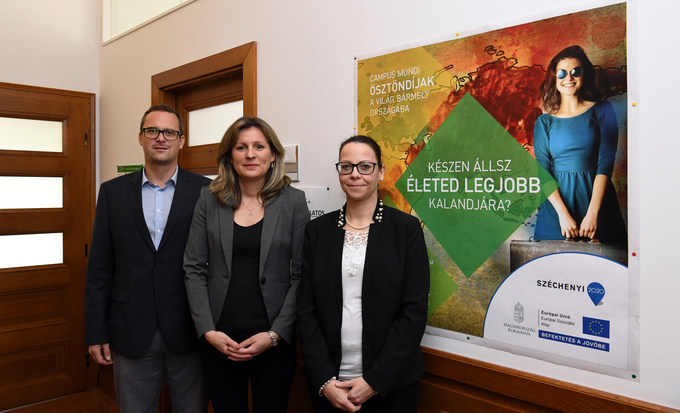
|
Erasmus+ It is the EU’s programme using its funds to support education, training, youth and sport. Types: Academic mobility of higher education students This type allows participants to gain educational, language and cultural experiences in a higher education institution in another programme country. Eligible activities:
Traineeship mobility of higher education students This type helps participants acquire skills required in the community labour market and understand the socio-economic context of the host country. Eligible activities:
Teaching mobility of higher education staff This type promotes the teaching mobility of teaching staff working in higher education institutions in a foreign partner institution or the teaching mobility of a professional of a foreign enterprise in a Hungarian higher education institution. Eligible activities:
Training mobility of higher education staff This type promotes the mobility of teaching, administrative and other non-teaching staff at a partner institution in a foreign programme country (HEI or enterprise) to allow knowledge transfer or the improvement of skills (seminars, courses, practice period, transfer etc.). Eligible activities:
Campus Mundi It is part of a project established by the Ministry of Human Capacities (EMMI) under the Széchenyi 2020 programme. The scholarship is provided for a period of study abroad closely related to the applicant’s local bachelor, master or doctoral study programme or for research work required specifically for diploma work or dissertation. Types: Academic mobility of higher education students This type allows applicants to complete studies abroad closely related to their local study programme, to gain intercultural experience to improve their job prospects in the Hungarian labour market and to promote their future studies. The period of study abroad is at least 3 months (90 days) not including travel time. Traineeship mobility of higher education students This type allows applicants to gain professional experience, competences and skills during their traineeship with the foreign host institution to improve their job prospects in the Hungarian labour market. The duration of the foreign traineeship may not be shorter than 3 months (minimum 90 days not including travel time) and no longer than 5 months. Short-term academic mobility of higher education students with outstanding abilities and academic achievement This type allows students with outstanding abilities and academic achievement to participate in short-term foreign study visits closely related to their local study programme. The successful students can perform research or art activities abroad, take part in international professional contests, apply for intensive specialisation courses (excluding language courses) and deliver speeches or poster presentations at international science conferences abroad. The short-term study visit may not be shorter than 2 days and no longer than 30 days not including travel time. Athens This programme enables participants to take part in a one-week intensive specialisation course at one of Europe’s leading technological universities (BME’s partner institutions) where BME offers to cover their accommodations costs while they have to pay the travel expenses. The programme also includes a “European dimension” activity where students get an insight into the host country’s culture. |
For more information on Erasmus+, Campus Mundi and Athens, application criteria and deadlines, please contact the Directorate for International Affairs.
– GI –
Photo: János Philip, BME NKI
Stamp size photo: BME Erasmus Facebook page



